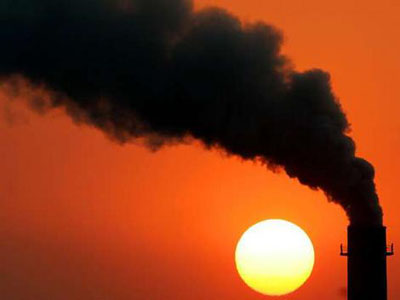Climate deal lacks C02 cuts scientists say are needed now
News1130

Green Party leader says Canada's position is without justification or logic
DURBAN (NEWS1130) - The hard-fought deal at a global climate conference in South Africa keeps talks alive but doesn't address the core problem: The world's biggest carbon polluters aren't willing to cut emissions of greenhouse gases enough to stave off dangerous levels of global warming.
Sunday's deal extends by five years the Kyoto Protocol: The 1997 agreement that has binding emissions targets for some industrial countries but not the world's biggest carbon polluters, China and the US.
Scientists say more reductions are needed before 2020, but the Durban talks produced no new commitments to cut emissions.
Fresh off the plane from attending the talks in Durban, Green Party Leader Elizabeth May told News1130 Canada's negotiating position was "without justification or logic."
"Canada was hoist with its own petard," she said, "because having said all along, 'We won't go to Kyoto because we want to see China in the deal,' when China said, 'We'll get in the deal as soon as the rest of the industrialized countries take a second commitment period, the media went to Canada and said, 'So does that change your position?' and they said, 'well, no.'"
"...It's clear that the Harper government is anti-global climate action, and I think it's essential that we, as a world community, keep moving forward. Basically what happened in Durban was that the rest of the decided just to ignore Canada and proceed along the track..."
May said as a global citizen, Canada has acquired a reputation akin to that of a "deadbeat dad."
"As a country, we're the kind of citizen that's viewed as, doesn't pay its debts, doesn't pay attention to its legally binding commitments, so it's as if you've got a country that behaves in ways that have brought us into disrepute," she said.
The US was also singled out for being unhelpful, she said, "Mostly because of the domestic politics in which Barack Obama finds himself.
"He doesn't want to do anything that could become fodder for Republican attacks in the election this fall, so countries kind of gave the US a bit of a pass knowing that their domestic politics are, to put it mildly, a bit dysfunctional."
The Wilderness Committee agrees that commitments reached at the climate summit don't go far enough, but is calling them a step in the right direction.
The organization's Tria Donaldson says she was pleased to see the US, China, and India get on board with the push toward binding emissions targets.
Her worry is with the timelines involved, as any potential pledges are not expected to take effect until 2020.
"Most of the science says that we need to be significantly reducing our emissions within the next five or seven years, and if a treaty doesn't come into effect until 2020, and if countries are waiting until then to start to take action, we're going to see a lot of the impacts of climate change already happening," she says.
More negotiations are planned with hopes for an agreement on international targets by 2015.
The Durban Platform sets out the framework for those negotiations between more than 190 countries, to come up with a deal on cutting their greenhouse gas emissions.
Donaldson says hope is the key message emerging from South Africa this weekend, led by key players like Europe.
"The incredible leadership of EU in this circumstance shows that there are countries that are stepping up to the plate and taking action, and it's just us here in North America that need to get on board as well, and do our darndest to stop catastrophic climate change."
With many scientists saying time is running out, a bigger part of the solution may have to come from the rise of climate-friendly technologies.